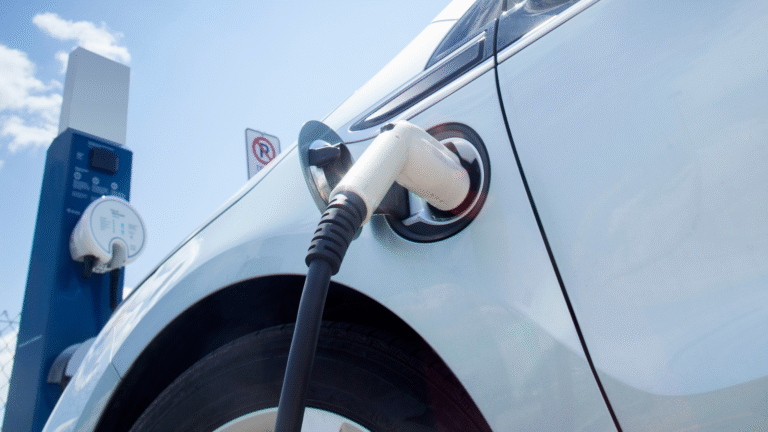Electric vehicles (EVs) have been marketed as cheaper to run than petrol cars—but what do they really cost over time? With price tags, charging costs, servicing, and depreciation all in the mix, Aussie drivers want real numbers. So let’s break it down: what does it actually cost to own an EV over five years in Australia?
Whether you’re considering a Tesla Model 3, BYD Dolphin, Hyundai Ioniq 5, or any of the growing number of electric options available, this article provides a realistic look at what to expect financially—and where you might save (or spend) more than you think.
—
Table of Contents
- Purchase Price and On-Road Costs
- Charging Costs (Home vs Public)
- Servicing and Maintenance
- Insurance and Roadside Assistance
- Registration and Government Incentives
- Depreciation and Resale Value
- Additional Costs (Accessories, Upgrades, etc.)
- Comparing with Petrol Cars
- Total 5-Year Cost: Sample Scenarios
- FAQs
- Conclusion
—
1. Purchase Price and On-Road Costs
As of mid-2025, EVs in Australia range from around $39,000 (BYD Dolphin) to $75,000+ for high-spec models like the Kia EV6 GT or Tesla Model Y Long Range.
On-road costs (stamp duty, rego, dealer delivery) can add $2,500–$5,000 depending on your state.
Some states waive stamp duty or registration fees for EVs. For example:
- NSW: Stamp duty exemption on EVs under $78,000
- ACT: 2 years free rego for ZEVs
- VIC: Road user charge (2.8c/km) now under review
Don’t forget: many dealers charge extra for wall charger hardware and installation—typically $1,500–$2,000.
—
2. Charging Costs (Home vs Public)
EV owners primarily charge at home, where electricity costs range from $0.25–$0.35/kWh (or lower with solar).
Let’s assume:
- Average Aussie drives 15,000 km/year
- Most EVs consume ~15–18 kWh per 100 km
- Total: ~2,400–2,700 kWh/year
Yearly cost to charge at home: $600–$950
5-year total: $3,000–$4,750
Public DC fast charging is more expensive—around $0.45–$0.65/kWh. If you rely on it heavily, your 5-year energy costs could jump to $6,000+.
—
3. Servicing and Maintenance
EVs have fewer moving parts—no oil changes, fewer filters, no spark plugs or timing belts.
Most manufacturers recommend a basic service every 12–24 months. Typical EV servicing cost: $150–$300/year.
Estimated 5-year total: $800–$1,200
Note: Tyre wear can be higher due to EV weight and instant torque. Budget ~$800–$1,000 for new tyres once over 5 years.
—
4. Insurance and Roadside Assistance
Insurance premiums for EVs can be slightly higher due to repair costs, but this is improving as more models hit the market.
Estimated annual comprehensive insurance (varies by age, location, car):
- Compact EV (e.g. MG4): $900–$1,300/year
- Mid-size EV (e.g. Tesla Model 3): $1,200–$1,800/year
5-year total: $5,000–$7,500
Some brands include 5–8 years of roadside assistance with new EVs.
—
5. Registration and Government Incentives
EV registration is often discounted:
- ACT: Free for first 2 years
- QLD: Discounted registration category
- VIC: Previously had RUC, but scrapped in 2024 ruling
Incentives (where still available) can shave up to $3,000 off the purchase price. However, many states have now exhausted their rebate budgets or shifted focus to infrastructure.
Registration over 5 years: $1,500–$3,000 (varies by state)
—
6. Depreciation and Resale Value
EV depreciation has improved significantly in recent years.
Average depreciation over 5 years:
- Budget EV (e.g. BYD Dolphin): 45–50%
- Mid-tier EV (e.g. Ioniq 5): 40–45%
- Premium EV (e.g. Tesla): 35–40%
On a $60,000 EV, expect it to be worth ~$33,000–$36,000 after 5 years.
New EVs typically lose more in the first 2 years, then stabilise. Used EV demand is growing, helping resale values hold stronger.
—
7. Additional Costs
Other common expenses include:
- Wall charger installation: $1,500–$2,000
- Charging cables/adapters: $200–$500
- Paint protection or tinting: optional ~$800–$1,200
- Subscription services (e.g. connected apps): some brands charge $100–$200/year
—
8. Comparing with Petrol Cars
Here’s how a petrol car stacks up (over 5 years at 15,000 km/year):
- Fuel: ~$12,000 (based on $2/L, 8L/100km)
- Servicing: ~$2,500–$4,000
- Registration: ~$3,000–$4,000
- Insurance: ~$5,000–$6,500
- Depreciation: 50–60% typical
Total running costs (not including purchase): ~$22,500–$26,500
For EVs, the running total (charging, servicing, insurance, rego): ~$12,000–$18,000
Savings over 5 years: $5,000–$10,000 (depending on model and driving habits)
—
9. Total 5-Year Cost: Sample Scenarios
| Vehicle | Purchase | Running Costs | Depreciation | 5-Year Total Cost |
|---|---|---|---|---|
| Tesla Model 3 RWD | $61,000 | ~$15,000 | ~$25,000 | ~$101,000 |
| BYD Dolphin Extended | $44,000 | ~$13,000 | ~$21,000 | ~$78,000 |
| Hyundai Ioniq 5 | $72,000 | ~$16,000 | ~$30,000 | ~$118,000 |
| Toyota Corolla (Petrol) | $33,000 | ~$25,000 | ~$17,000 | ~$75,000 |
Note: These are estimates and will vary based on location, driving style, and charger use.
—
10. FAQs
Q: Is it cheaper to run an EV in regional areas?
A: Not always—public chargers may be more expensive or sparse. But if you have home solar, it can be very cheap.
Q: Do EVs really need less maintenance?
A: Yes, but tyres and brakes may wear faster depending on how you drive.
Q: Will EV servicing get cheaper?
A: Likely yes, as more mechanics train and competition increases.
—
11. Conclusion
Over five years, EVs in Australia generally cost less to run than petrol cars—especially if you charge at home or have solar. While upfront costs remain higher, ongoing savings on fuel, servicing, and some rego fees help offset that.
As the market matures, these savings will likely improve further—especially with cheaper models and more charging access. If you’re planning to keep your next car for several years, the EV advantage is becoming clearer every kilometre.
—
12. Meta Description
Wondering what it really costs to own an EV in Australia? Here’s a full 5-year breakdown—purchase, charging, servicing, insurance, depreciation, and more.
